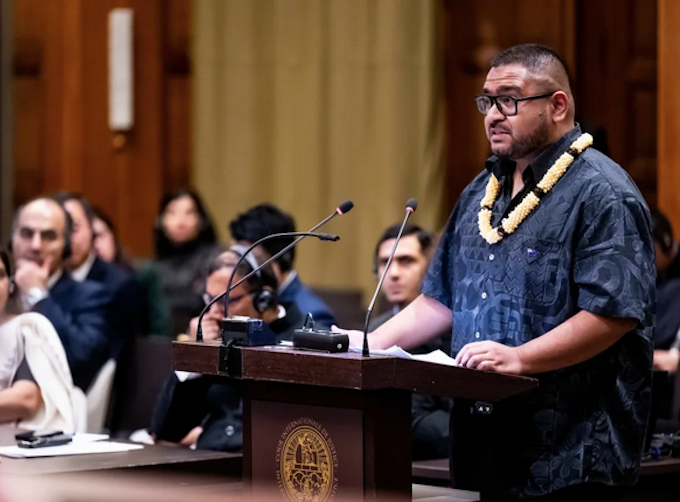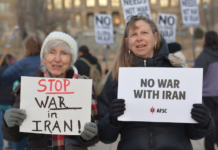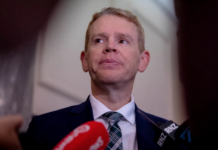
The Cook Islands has used its first-ever appearance at the International Court of Justice (ICJ) to advocate for the “decolonisation” of international law.
While making an oral statement for an advisory opinion on the obligations of states regarding climate change, Auckland University senior lecturer Fuimaono Dr Dylan Asafo placed the blame on “our international legal system” for “the climate crisis we face today”.
He said major greenhouse gas emitters have relied “on these systems, and the institutions and fora they contain, like the annual COPs (Conference of Parties)” for many decades “to expand fossil fuel industries, increase their emissions and evade responsibility for the significant harms their emissions have caused.”
- READ MORE: Climate justice: Vanuatu’s landmark case at ICJ seeks to hold polluting nations responsible
- Other climate justice reports
“In doing so, they have been able to maintain and grow the broader systems of domination that drive the climate crisis today — including imperialism, colonialism, racial capitalism, heteropatriarchy and ableism.”
Fuimaono called on nations to “dismantle these systems and imagine and build new ones capable of allowing everyone to live lives of joy and dignity, so that they are able to determine their own futures and destinies.”
He said the UN General Assembly’s request for an advisory opinion offers the ICJ “the most precious opportunity to interpret and advise on existing international law in its best possible light in order to empower all states and peoples to work together to decolonise international law and build a more equitable and just world for us all.”
The Cook Islands joined more than 100 other states and international organisations participating in the written and oral proceedings — the largest number of participants ever for an ICJ proceeding.
Fuimaono said the Cook Islands believes states should owe reparations to climate vulnerable countries if they fail to meet their adaptation and mitigation obligations, and the adverse effects to climate change lead to displacement, migration, and relocation.
The island nation’s delegation was led by its Foreign Affairs and Immigration director of the treaties, multilaterals and oceans division Sandrina Thondoo; foreign service officer Peka Fisher; and Fuimaono as external counsel.
This article is republished under a community partnership agreement with RNZ.














































